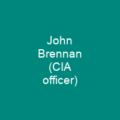The Central Intelligence Agency (CIA) is a civilian foreign intelligence service tasked with gathering, processing, and analyzing national security information from around the world. Think of it as the eyes and ears of the United States, constantly monitoring global events to keep the nation safe. Created in 1946 following the dissolution of the Office of Strategic Services (OSS) at the end of World War II, the CIA has grown into a complex organization with a wide range of responsibilities.
The Structure and Functions of the CIA
Organized into five major directorates—Digital Innovation, Analysis, Operations, Support, and Science & Technology—the CIA is a well-oiled machine. Each plays a crucial role in ensuring that the agency can operate effectively both domestically and internationally.
The Directorate of Digital Innovation
This department accelerates innovation across CIA mission activities, focusing on digital and cybersecurity capabilities. In an era where technology is rapidly evolving, this directorate ensures that the CIA remains at the forefront of intelligence gathering and analysis.
The Directorate of Analysis
Providing regional and operational intelligence to policymakers, this directorate is vital for making informed decisions. It’s like having a team of experts who can quickly interpret complex data and provide actionable insights.
The Directorate of Operations
This unit collects foreign intelligence and conducts covert action on behalf of the president. Think of it as the CIA’s field agents, working tirelessly to gather critical information in hostile environments.
The Directorate of Support
Handling organizational and administrative functions, this directorate ensures that all other operations run smoothly. It’s the backbone that keeps everything running efficiently behind the scenes.
The Directorate of Science & Technology
Researching technical collection disciplines and equipment, this directorate is responsible for developing cutting-edge tools to enhance intelligence gathering. It’s like having a team of inventors constantly working on new ways to stay ahead of adversaries.
A Brief History of the CIA
The creation of the Central Intelligence Agency (CIA) was a result of U.S. President Franklin D. Roosevelt’s authorization for an intelligence service modeled after the British Secret Intelligence Service during World War II. The Office of Strategic Services (OSS) was created in 1942, and General William J. Donovan proposed the idea of a ‘Central Intelligence Service’ that would counter communist threats and provide crucial intelligence directly to the President.
After Roosevelt’s death, President Harry Truman inherited a presidency largely uninformed about key wartime projects and global intelligence activities. Truman initially saw the proposed central intelligence agency as a simple information gathering entity, but his vision differed from Donovan’s, which focused on avoiding an American version of the Gestapo.
The CIA in Action
From covert paramilitary operations to information operations and cyber operations, the CIA has played a significant role in shaping U.S. foreign policy. However, its involvement in several controversies, including torture, domestic wiretapping, propaganda, and alleged human rights violations and drug trafficking, has cast a shadow over its reputation.
One of the most infamous operations was Operation Ajax, which aimed to overthrow Iranian Prime Minister Mohammad Mosaddegh in 1953. The CIA’s involvement in this operation led to significant geopolitical changes that still resonate today. Similarly, the agency’s role in the Guatemalan coup d’état and its support for various right-wing regimes have been subjects of intense scrutiny.
Modern Challenges
The CIA faces numerous challenges in the modern era. From the 9/11 attacks to the War on Terror, the agency has had to adapt to new threats and technologies. The Intelligence Reform and Terrorism Prevention Act of 2004 created the office of the Director of National Intelligence (DNI), taking over some functions previously held by the CIA.
Under John Brennan’s leadership, the CIA announced plans for reorganization and reform. This included the establishment of a new Directorate of Digital Innovation to focus on digital technology and cyber-espionage. Other changes included the formation of Talent Development Center, expansion of CIA University, and creation of Mission Centers to address specific geographic regions.
Conclusion
The Central Intelligence Agency (CIA) has come a long way since its inception in 1947. From gathering intelligence during World War II to conducting covert operations and managing the ‘War on Terror,’ the CIA continues to play a crucial role in shaping U.S. foreign policy. While controversies have marred its history, the agency remains an essential tool for national security.

You want to know more about Central Intelligence Agency?
This page is based on the article Central Intelligence Agency published in Wikipedia (retrieved on February 5, 2025) and was automatically summarized using artificial intelligence.






